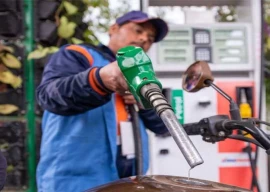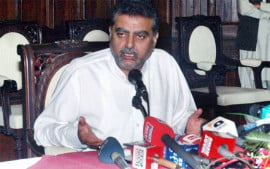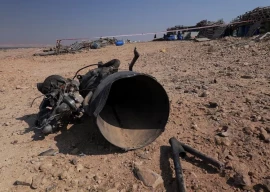
BERLIN: One person in four worldwide paid a bribe during the past year, according to a study released Thursday to mark International Anti-Corruption Day.
The study, by the Berlin-based non-governmental agency Transparency International, focuses on small-scale bribery and was put together from polls conducted among more than 91,000 people in 86 countries and territories.
In the past 12 months, one in four paid a bribe to one of nine institutions, such as health, education or tax authorities, according to the 2010 Global Corruption Barometer.
But it was the police who proved most corrupt, according to the study which reported that 29 percent of those having dealings with police said they had paid a bribe.
Worldwide, sub-Saharan Africa was the region reporting the greatest incidence of bribery with more than one person in two saying they had made such payments to officials in the past 12 months.
The Middle East and North Africa was the next most corrupt region with 36 percent of people there reporting having paid a bribe.
This compared to 32 percent in the former Soviet republics, 23 percent in South America, 19 percent in the Balkans and Turkey, 11 percent in the Asia-Pacific region, and five percent in the European Union and North America.
Countries topping the list for reported bribe payments over the year were Afghanistan, Cambodia, Cameroon, India, Iraq, Liberia, Nigeria, the Palestinian territories, Senegal, Sierre Leone and Uganda, where more than one person out of two said they had handed out financial sweeteners to officials.
Nearly half of respondents said they paid to avoid problems, while a quarter said it was meant to speed up procedures.
Lower income earners reported paying more bribes than the better paid.
The study, the seventh on the matter by Transparency International since 2003, this time involved a greater number of countries, including for the first time China, Bangladesh and the Palestinian territories.
Polling, mostly by the Gallup Institute, was conducted between June 1 and September 30.
The United Nations established International Anti-Corruption Day in 2003 to raise awareness of graft and promote the global fight against it.



















1713246307-0/OIP-(2)1713246307-0-270x192.webp)
_updates1713245447-0/1178596_7858743_Salman-Khan-(2)_updates1713245447-0-270x192.webp)






















COMMENTS (1)
Comments are moderated and generally will be posted if they are on-topic and not abusive.
For more information, please see our Comments FAQ